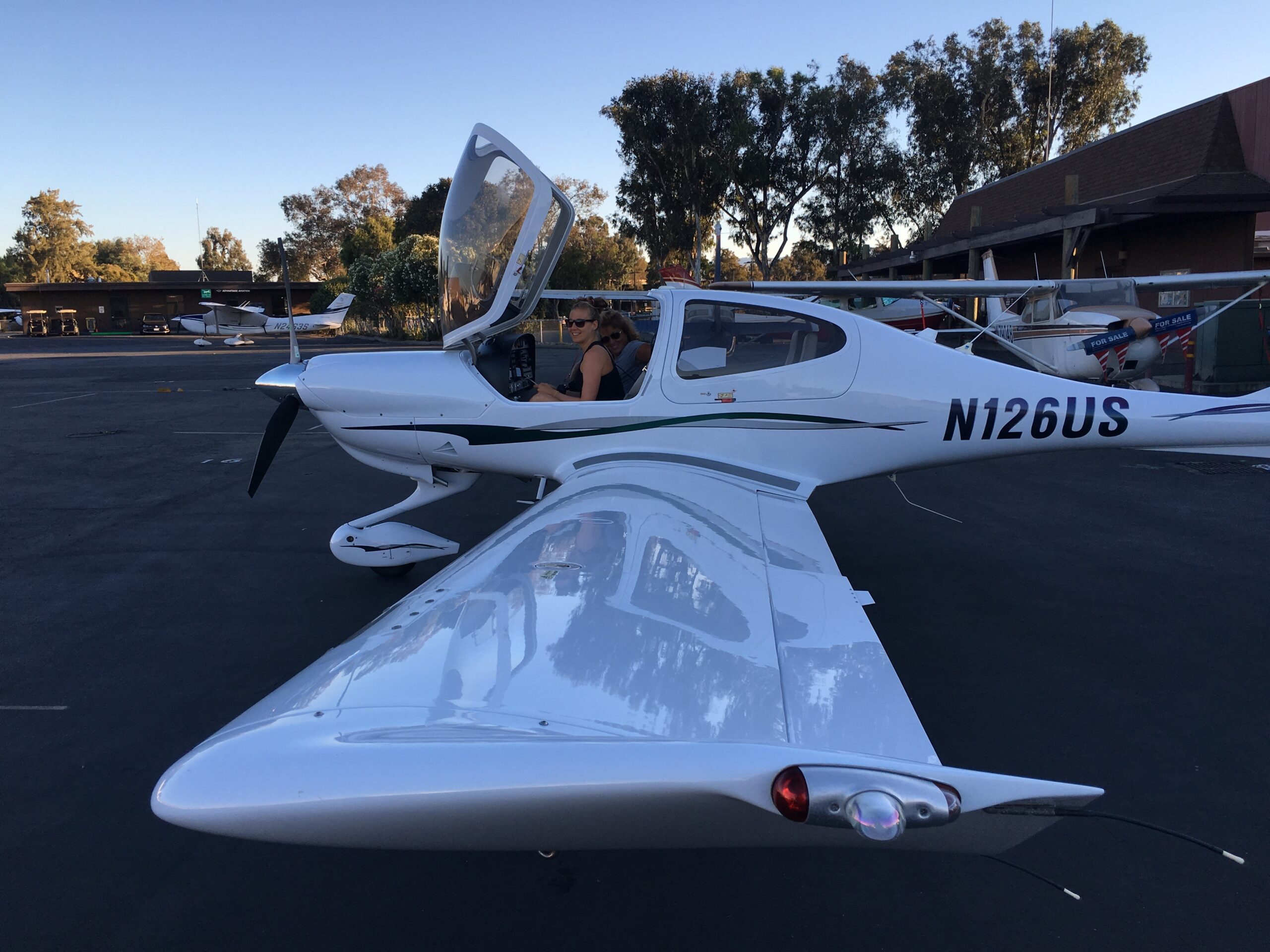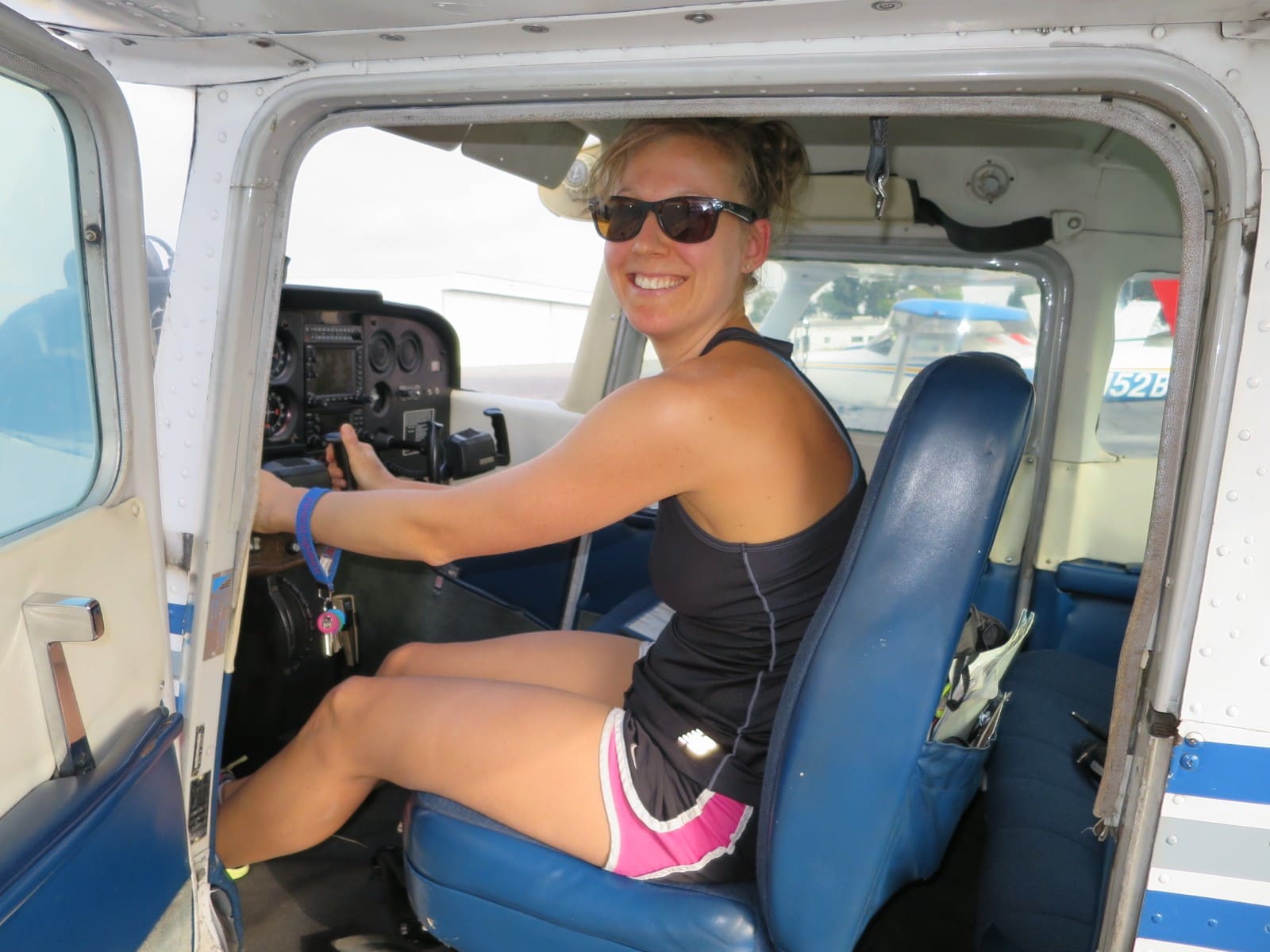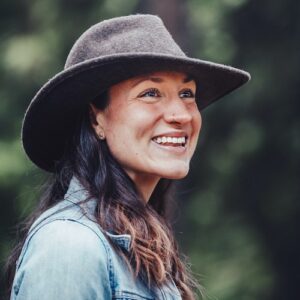An astronaut, a ballerina, a pilot, the founder of a company
A doctor, a ballerina, a pilot and the founder of a company walk into The Freshwater Trust (TFT). And the punch line is that they’re all the same person.
Dr. Sara Spangelo is the CEO and co-founder of Swarm Technologies, the company that is developing the world’s lowest-cost global communications network with breakthrough satellite technology and ground hardware for customers in remote locations. Before founding Swarm, Sara worked on small satellites and autonomous aircraft at the University of Michigan and was a lead systems engineer at both NASA’s Jet Propulsion Lab (JPL) and Google X. Her expertise is in modeling and optimizing satellite constellations to maximize impact and business opportunities. Sara holds a PhD in aerospace engineering from the University of Michigan and in 2017 was a Top 32 Canadian astronaut candidate. In addition, Sara supports TFT on our Board of Directors. TFT’s Director of Communications Haley Walker had the opportunity to speak recently with Sara about her background and why she’s interested in TFT.
Tell me a little about yourself. Where’d you grow up?
I grew up in Canada, and both my parents were civil engineers. My dad worked for Manitoba Hydro, and my mom worked for water resources. I suppose you could say that water was always a part of our lives. I distinctly remember a huge flood in 1999 in Winnipeg. We had a levee to protect the city, but a lot of the communities still flooded. Growing up with my dad in hydro and then this event made me think a lot about the power of water to bring power but also to destroy.

Growing up, Sara (left) was a ballerina.
Is this always where you pictured yourself?
Sort of. I was always an entrepreneur and very independent. I was a ballerina. I did a lot of babysitting and even had my own party planning business for a while. But I also was always really good at science, math and physics. I said I’d never be an engineer because I watched my parents and it seemed so boring, but after my second year at the University of Manitoba, I realized that’s where I should be. I graduated with the same degree from the same university as my grandfather.
So, the fascination with space came while you were in college?
Actually, I did go to space camp when I was young, and it was really impactful on me. I always said I wanted to be an astronaut at some point. After I finished undergrad, grad school at the University of Michigan allowed me to focus on space. I got to work on mission operations, which is really rare for someone in school. It was an amazing growth opportunity, and after that, I knew I wanted to work for NASA and was able to take a job with JPL, or the Jet Propulsion Laboratory, in Southern California. I was an engineer for a number of missions that went to Mars and Jupiter. I then went on to work at Google X on Project Wing, which was a drone program.

Sara (front) had an early interest in science and math.
How’d you get from those massive organizations to starting your own business?
A lot of the projects that I worked on would hopefully do something in 10 plus years, and I guess I wanted to work on something that had a more immediate impact. Both me and my cofounder had also noticed so much investment going into complicated aerospace projects that required billions and took years to deploy, and they had a high potential of failing. We wanted to work on a different scale agriculture, energy, logistics, transportation. And so, we launched the world’s smallest two-way satellite. We have raised $35 million. We are currently at 24 people and 80% are engineers. Also, 30% of them are women, and that’s a big percentage for a space company.
Okay. I hear satellites and all sectors of the economy, but in one sentence, what does Swarm do?
We are launching really tiny satellites to provide the lowest-cost global connectivity solution, so that you can connect your device literally on any point on Earth at all times.
What’s a piece of advice you’d give to someone starting a company?
I had the dream to start a company for a long time, but I never thought I had the skills or expertise or vision. You just aren’t ever going to know it all. You put one foot in front of the other, and you gain the confidence to do it. I’d worked in some really amazing places, but I often realized that projects got cancelled or slowed down because of so many externalities. I thought that if I created my own thing, I could set the destiny and define the resources. I may have been a little naive to the challenges at times, but I think you have to be to start something new.

Sara has a pilot's license.
How’d you get to know TFT?
It was a little circuitous. In 2017, there was a program where you could apply to be an astronaut. I realized I actually did check a lot of the boxes. I had a Ph.D. I had a pilot’s license. I was in good shape. I made it to the top 64 Canadian astronauts and in that time met Evan Thomas, the founder of SweetSense. He introduced me to TFT and the work that TFT and SweetSense were doing together.
What inspired you to join TFT’s board?
I think I can be a helpful bridge between what TFT is doing and what’s happening in Silicon Valley. There’s a lot of money here and a lot of people trying to figure out where to invest. I want to figure out how to make that a reality. A lot of people don’t know where to put their money, but if they were more informed about the impact, they would.
What impresses you about TFT?
I’m really analytical and data driven, and I think that’s why I’m excited to support and learn more about the modeling tool. Modeling different scenarios and then being able to communicate those to the public is really powerful.
Besides your own innovations, are there other things in the world of tech that are inspiring to you right now?
I’m excited about autonomous vehicles. There are so many different ways it could be used.
You mentioned that 30% of Swarm is made up of women. What have you learned as a woman in the workplace and in leadership?
I’m reading this book right now called, “You Just Don’t Understand.” It’s illuminating because all our lives we’re told that men and women are equal and should be treated equally, but the fact is that our communication styles are different. Men are independent thinkers and want to always be alpha. Women are super collaborative. I see this dynamic emerge all the time. It’s important to be aware of the differences in these styles.
When’s a time you’ve failed?
One thing I realized I’ve failed at is sometimes communicating vision, execution and priorities properly. I’ve learned that fewer words are better, as is giving super crisp direction. Otherwise, people will hear what they want to hear.

Sara, prepared for another flight.
Best piece of advice you’ve ever been given?
Calm down? From my parents? I was a really anxious kid and don’t think that stuff every fully goes away. My dad would always say, “Take three deep breaths,” to gain some perspective on the situation. I hated it, but it actually works.
I also got some good advice from a friend who advocates for repeating something back to people who are talking to you as a way to emphasize that you’re hearing them. Sometimes the words “I hear you” just need to be spoken.
In addition to the one you mentioned, what are some other books you’re reading right now?
“Why We Sleep.” This is something I’m super interested in from a science perspective and personally how it impacts my energy and mood. Sleep is the building block, and if you don’t sleep, you’re pretty much useless on so many fronts.
Do you have a hidden talent?
Well, I’m a pilot, but I guess that’s not really hidden. I can clap with one hand?
Has COVID impacted your work?
Swarm was and still is in a great position. I’m really grateful that we got funding and won a big grant before this happened. We transitioned to working from home pretty quickly too, and we were deemed essential because we were doing some work with the Air Force. Personally, it’s also been really good for me. I feel a lot less frantic and have been spending a lot more time outside and in nature. There’s actually been a lot from this experience that I want to take forward with me.
June 29, 2020#board of directors #California
Enjoying Streamside?
This is a space of insight and commentary on how people, business, data and technology shape and impact the world of water. Subscribe and stay up-to-date.
Subscribe- Year in Review: 2023 Highlights
By Ben Wyatt - Report: Leveraging Analytics & Funding for Restoration
By Joe Whitworth - Report: Transparency & Transformational Change
By Joe Whitworth - On-the-Ground Action – Made Possible By You
By Haley Walker - A Report Representing Momentum
By Joe Whitworth

